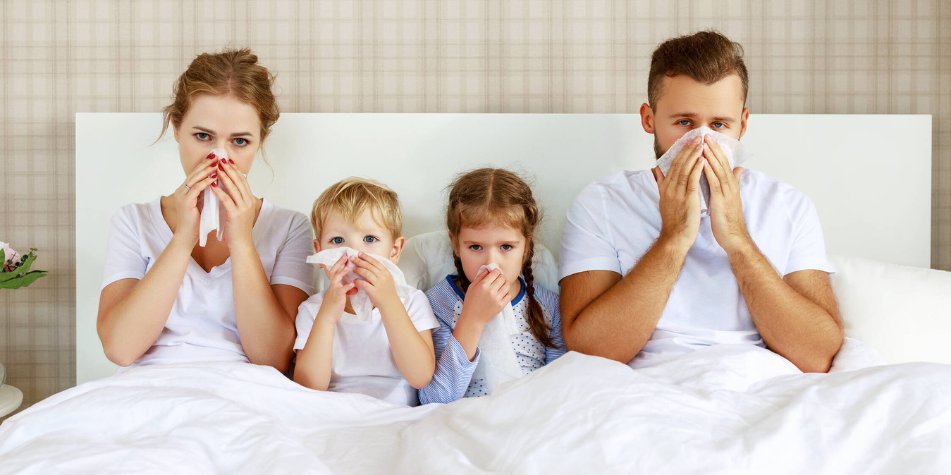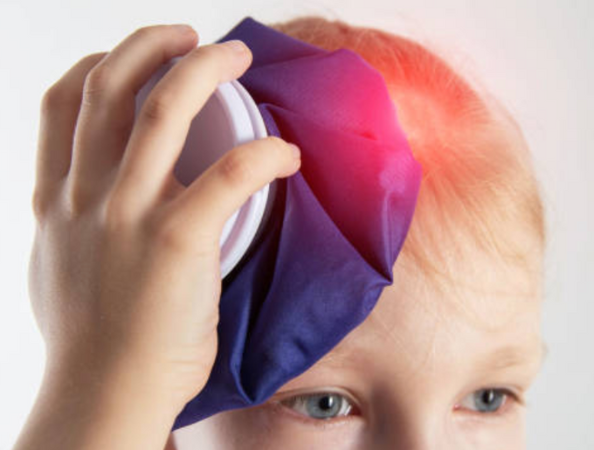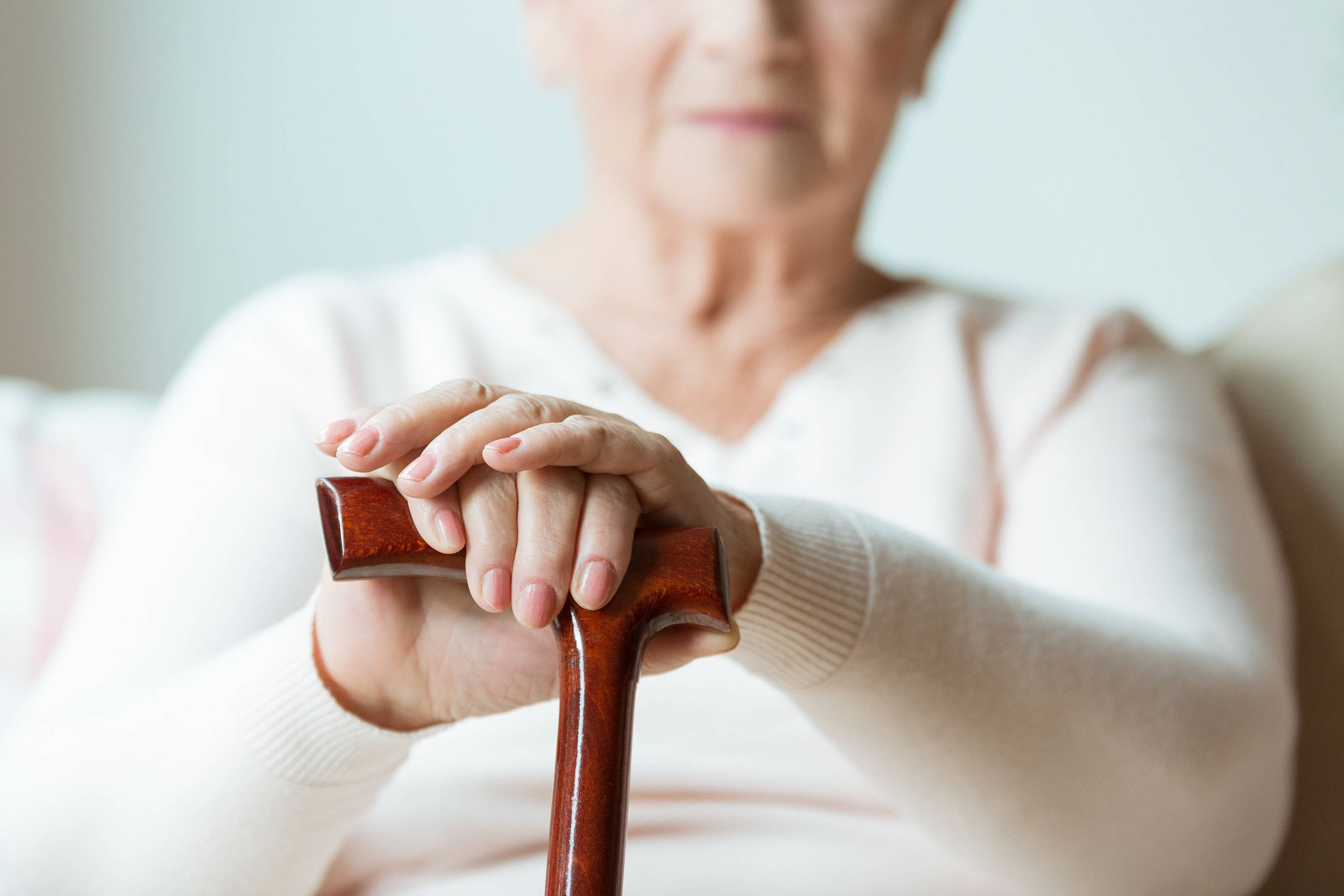These are the main reasons for visiting a doctor at home during vacation: this is what you should do if they occur

During the holiday season, the most common medical consultations in Colombia are related to gastrointestinal complications, such as vomiting and stomach upset, resulting from dietary changes. Respiratory illnesses such as colds and flu can occur, as well as conditions like conjunctivitis and allergies. Injuries such as fractures, sprains, or bruises caused by sports or other activities are also common. This is according to statistics on health services provided during the last year by Emermédica.
During the holiday season, children between the ages of 1 and 5 are the group with the most visits to the doctor, for gastrointestinal illnesses, colds, and skin and ear infections, the latter associated with swimming pool use. The second most frequent age group is adults over 60, who request home medical services due to uncontrolled chronic illnesses such as high blood pressure, diabetes, and chronic lung disease. Adults between the ages of 18 and 30 seek medical attention primarily for trauma and injuries, gastrointestinal disorders, and emotional instability related to alcohol and substance use.
Colombian families with home and prehospital health care services seek out this healthcare service first for ARI (acute respiratory infection), followed by ADD (acute diarrheal disease), and then trauma and abdominal pain, respectively, in third and fourth place.
What to do if these conditions occur during the trip? Vacations, while an opportunity for rest, can also expose the body to unusual situations: changes in weather, sleep and eating schedules, increased exposure to sun and water, and more. Given this context, it's key to know what to do if any of these health conditions appear:
Respiratory infections in children Emermédica reports that acute respiratory infections (ARIs) are the leading cause of medical consultations during the holiday season. These can be exacerbated by sudden changes in temperature or prolonged exposure to humid or closed environments.
- Fever above 38.5°C that does not respond to physical measures or medications.
- Rapid or labored breathing (sinking between the ribs).
- Marked weakness or persistent refusal to eat.
What to do about respiratory infections in children?
If you experience these signs, it's recommended to seek medical advice through available channels, such as telemedicine, to receive clear instructions on home care and determine whether you need to visit a health center.

ARIs are one of the most common conditions during this season. Photo: iStock
Acute diarrheal diseases (ADD) are the second leading cause of medical consultations during vacations and are often related to changes in diet or the consumption of contaminated food.
- Persistent bloody diarrhea or vomiting (more than three episodes in two hours).
- Signs of dehydration: dry mouth, very sleepy, sunken eyes, little urine or no tears.
- Severe abdominal pain that does not improve or increases over time.
What to do about gastrointestinal diseases?
These conditions should be evaluated by a professional. If immediate on-site care is not available, telemedicine services can be used to receive care and determine the need for an in-person consultation.

Avoid giving spicy or irritating foods to your children if they have AD. Photo: iStock
Among young people aged 18 to 30, physical trauma is a leading cause of medical consultation, especially during sports or recreational activities.
- Inability to move the affected limb or severe pain when attempting to do so.
- Significant swelling or visible deformity.
- Tingling, numbness, or weakness.
What to do in case of trauma and injuries?
In these cases, avoid moving the affected area, apply cold compresses, and consult a professional as soon as possible. If immediate medical assistance is not feasible, a video call may be the first step for an indicative evaluation.

Head injuries can be dangerous if not treated promptly. Photo: iStock
During the holidays, older adults often experience discomfort due to changes in their routine, diet, or forgetting medication doses.
- Sustained very high or low blood pressure.
- Difficulty breathing at rest.
- Sudden confusion, marked weakness, or speech disturbances.
What to do when older adults experience decompensation?
These signs require priority attention. If there is no medical center nearby, it is important to have a professional contact channel, medical telemedicine, to receive precise instructions on immediate treatment or transfer if necessary.

For older adults, timely action is critical. Photo: iStock
During vacations, having clear information about warning signs and knowing who to consult can prevent complications and ensure that a health problem doesn't ruin your vacation. The ability to access medical advice, even remotely, is a key tool today, especially when you're away from home.
Alternatives like Emermédica offer telemedicine services, making it easier to access medical evaluations without having to travel, especially useful when you're away from home.
A key fact is that, in 2024, 63% of home health care requests were made by women, while only 37% were made by men. “Generally, it is observed that women tend to pay more attention to their health and well-being. They seek medical attention more quickly when symptoms appear, while men tend to wait longer, which can lead to late diagnoses,” explains Dr. Mauricio Guerrero, national medical director.
The numbers reflect a reality: being vigilant, acting promptly, and accessing professional guidance is not only prevention, it's also a way to enjoy peace of mind. Because, on vacation, taking care of your health is part of the plan.
Environment and Health Journalist
eltiempo

%3Aformat(jpg)%3Aquality(99)%3Awatermark(f.elconfidencial.com%2Ffile%2Fbae%2Feea%2Ffde%2Fbaeeeafde1b3229287b0c008f7602058.png%2C0%2C275%2C1)%2Ff.elconfidencial.com%2Foriginal%2F55f%2F92e%2Fc95%2F55f92ec958ffe2e165791469192f4f84.jpg&w=1280&q=100)
%3Aformat(jpg)%3Aquality(99)%3Awatermark(f.elconfidencial.com%2Ffile%2Fbae%2Feea%2Ffde%2Fbaeeeafde1b3229287b0c008f7602058.png%2C0%2C275%2C1)%2Ff.elconfidencial.com%2Foriginal%2F45a%2F483%2Fa1f%2F45a483a1f10047515937a7bb0d34b6fa.jpg&w=1280&q=100)
%3Aformat(jpg)%3Aquality(99)%3Awatermark(f.elconfidencial.com%2Ffile%2Fbae%2Feea%2Ffde%2Fbaeeeafde1b3229287b0c008f7602058.png%2C0%2C275%2C1)%2Ff.elconfidencial.com%2Foriginal%2F0cc%2F1d8%2F337%2F0cc1d8337c864f3437ad038e678edf9f.jpg&w=1280&q=100)

